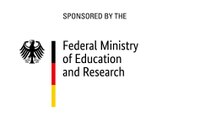Joint project "(Un)Disciplined: Pluralizing Ukrainian Studies—Understanding the War in Ukraine" (UNDIPUS) / Subproject "After Masculinity. Female Perspectives on the War in Eastern Ukraine"
Funded by the German Ministry of Education and Research (BMBF), funding line "Small Disciplines—Great Potentials" ("Kleine Fächer – Große Potentiale”), 02/2022—01/2026


The joint project "(Un)Disciplined: Pluralizing Ukrainian Studies—Understanding the War in Ukraine" (UNDIPUS) is a research network comprising five subprojects, four disciplines, and three locations—the universities of Greifswald, Regensburg, and Giessen. Funded by the German Ministry of Education and Research (BMBF) within the funding line "Small Disciplines—Great Potentials," it pursues several goals. Thematically, it was designed to understand the conflict in Donbas(s), to investigate its long foreplay and cultural dimensions, and most importantly, the impact of the war on Ukrainian society and identity discourses. Methodologically and institutionally, its goals are pluralization, networking, and thus the consolidation of Ukrainian studies in Germany and internationally. Of particular significance for the project's collective are the critical perspectives on the interplay between nation-building and Ukrainian studies and the attempts to "discipline" and instrumentalize them, especially in times of war.
Coordinated by PI PhD Olga Plakhotnik and JProf. Dr. Roman Dubasevych (both Chair for Ukrainian Cultural Studies, University of Greifswald), UNDIPUS seeks to bundle, through a series of academic events—workshops, conferences, and exhibitions—and collective publications, the most important research initiatives on Ukraine in Germany to make Ukrainian Studies visible and vocal at home and abroad, both as a separate discipline and as part of East European Studies. In so doing, the UNDIPUS initiative seeks to meet the urgent need for expertise on Ukraine in Germany and thus contribute to more effective peace efforts.
For more information on the joint project see here.
The subproject "After Masculinity. Female Perspectives on the War in Eastern Ukraine," which is carried out by Dr. Oleksandr Chertenko at the University of Giessen, examines the specific figurations of the feminine in Ukrainian fictional and non-fictional women’s literature in the context of the war in the Donbas(s). It analyzes women’s narratives about the war in Eastern Ukraine as polyvalent models of women’s self-constitution in times of war and situates them in the Ukrainian identity debate after 1991 and especially after 2014. The subproject thereby contributes to a better understanding of the highly complex conflict dynamics in post-2014 Ukraine as well as in other Eastern European crisis areas.
How are literary and cultural topoi, stereotypes, and representations developed, re-actualized, and instrumentalized under different ideological auspices in Ukrainian literary texts by women, which emerged in the wake of the war in Eastern Ukraine? What cultural and historical traumas are addressed in Ukrainian women’s fiction and non-fiction writing on war—and why? How do the processes of women’s identity formation shape the ways they write about the war and influence the (re-)production of the gender roles and stereotypes mediated both literarily and culturally? How are women’s self-designs being "nationalized" and/or inscribed into colonial, postcolonial or decolonial frameworks? What pluralization strategies are—or can be—fostered by Ukrainian women’s literature on war to counter these tendencies? In what ways do literary and cultural models of Ukrainian women’s self-constitution in times of war interrelate with their equivalents in other post-socialist (post-Soviet) countries? By addressing these questions, the subproject attempts to gain a deeper understanding of the conflict's causes and cultural repercussions. This also plays a crucial role in a search for more adequate and differentiated identity politics in Ukraine—both during the current war and afterwards.
Contact:
Dr. Oleksandr Chertenko (head of the project)
Justus Liebig University Giessen
Institute of Slavic Languages and Literatures
Otto-Behaghel-Strasse 10D, room 511
35394 Giessen
Phone: +49 (0)641 99-31164
E-mail: oleksandr.chertenko@slavistik.uni-giessen.de
Laura Puhze (student assistant)
Justus Liebig University Giessen
Otto-Behaghel-Straße 10D, room 308
35394 Giessen
Phone: +49 (0)157 57-527442
E-mail: laura.puhze@geschichte.uni-giessen.de
